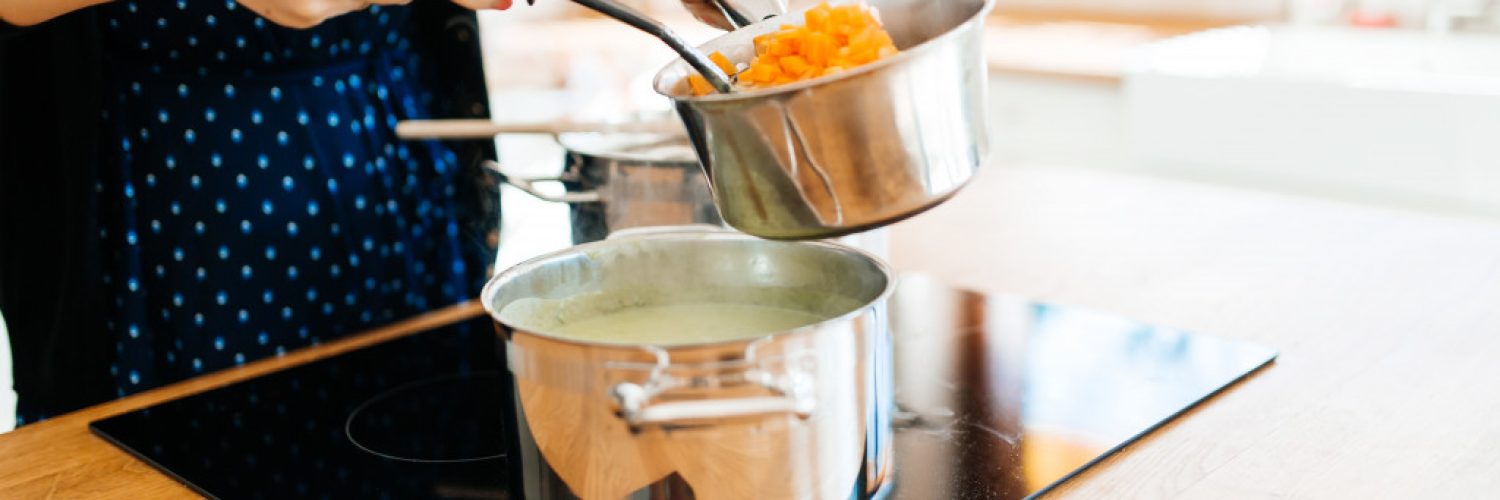Experts say that learning how to cook benefits your health in multiple ways. For one, home cooking helps you consume fewer calories, according to a 2014 study by Public Health Nutrition. For another, home cooking allows you to choose your ingredients. Dining at restaurants or opting for takeout gives you no control over what ingredients are included in your meals. And lastly, cooking can be a therapeutic activity that can help improve your mental health and self-esteem.
In the time of COVID-19, we need to be more mindful of our health. A key aspect of staying physically healthy is a proper diet. Expanding your culinary skills can greatly improve our nutrition, diet, and even social life.
There’s no denying that cooking can be a challenge for people who have no background whatsoever, so here we have compiled a list of basic cooking tips, concepts, and skills you need in your arsenal before you get started on your culinary journey.
Mise en place
Nothing adds unnecessary stress to cooking more than a disordered kitchen counter. To combat this, you need to practice “mise en place.” Roughly translated, it simply means “everything in its place.” It means every ingredient and tool must be prepared before you even start cooking. To do this, you need to gather all the ingredients and line them up according to when you’ll use them. The ingredients that come in packs you must place on small plates. Only take out the amount that you’ll need for this particular meal. To keep everything in its place at all times, make sure to clean as you go, not after you’re done cooking. Immediately wash and put away tools you’re done using.
Basic knife skills
A good home chef must have a sharp set of knives and an excellent set of knife skills in their arsenal. Here are the basics:
- Hold the knife properly. The palm of your hand must choke the handle, your index finger and thumb must grip the top of the blade.
- Your helping hand must be in a claw position to prevent your fingers from being cut. Curl your fingers under your knuckles while it supports the hand that does the chopping.
- There are different kinds of knife cuts: chopping, dicing, slicing, julienne, and others. Pay attention to the kind of cuts the recipe requires.
- Not all knives are created equal. Make sure you have a basic knife set: A classic chef’s knife, a utility knife, and a serrated knife. Every other kind is optional.
Kitchen safety
 Before you start your cooking journey, make sure your kitchen is well-equipped for any cooking disaster that may arise. Here is a basic kitchen safety checklist:
Before you start your cooking journey, make sure your kitchen is well-equipped for any cooking disaster that may arise. Here is a basic kitchen safety checklist:
- Avoid wearing loose clothes and keep your hair tied back.
- Store knives properly in a drawer or a wooden block knife holder.
- Remove all jewelry before you start cooking.
- Keep potholders in every corner of the kitchen, so they remain accessible to you anytime you need them.
- Be quick to wipe away any spills so that no one falls and slips.
- Wash your hands with soap and water for twenty seconds before and after cooking.
- Install a working fire extinguisher; replace it every time it expires.
- Test your smoke alarm regularly.
A well-stocked pantry
Make sure your pantry is filled with nutritious yet still delicious ingredients. These are some of your pantry essentials:
- Fruits and vegetables
- Healthy oils like vegetable oil, olive oil, coconut oil, and sesame oil
- Different kinds of vinegar—balsamic, red wine, and apple cider
- Salt, sugar, and peppers
- Garlic and onions
- Liquid sweeteners like honey, corn syrup, and maple syrup
- Carbohydrates like rice, pasta, beans, and potatoes
- Specialized condiments and spreads like Barrio Fiesta’s shrimp paste that’s sweet and spicy and Trader Joe’s Speculoos cookie butter
- Storage containers like glass jars, baskets, bins, and organizers
Create a plan
Don’t just get to work without a plan. Write down a daily menu filled with an appetizer, entree, and dessert. If that sounds intimidating, start with your main meal, which is the entree. Once you have mastered a recipe or two, work your way towards cooking appetizers and desserts. You don’t need to start with overly complicated recipes—start with simple ones like a Cesar salad, guacamole, and no-bake desserts.
Do Not Despise Small Beginnings
Everyone has to start somewhere. If you want to eat more healthily, improve your nutrition, and boost your immune system, you need to take control of what you consume. Cooking your meals yourself can help you achieve these goals. Start small and simple, and you will find yourself making more complicated and delicious meals in no time. Don’t be afraid to make mistakes and explore. Good luck!

